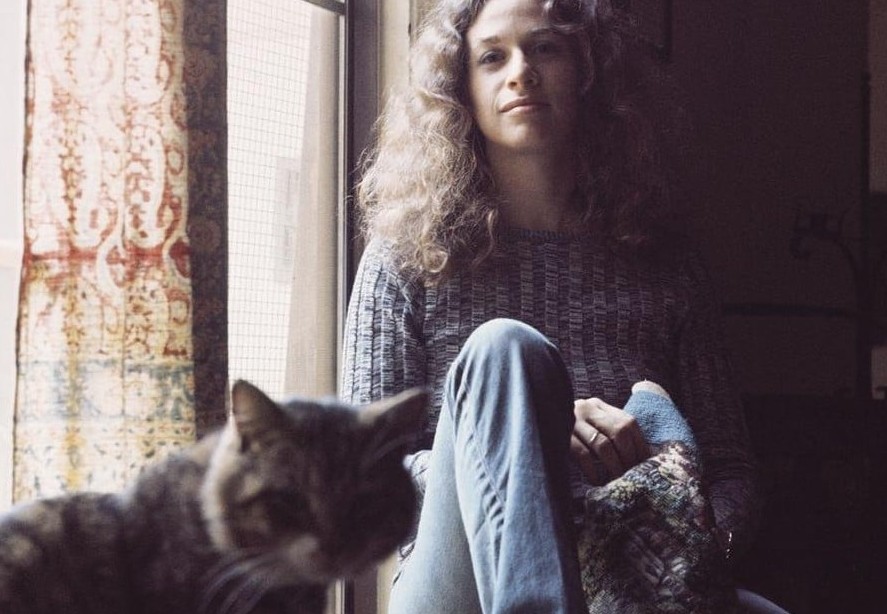“Her songs are like stories or sonic movies,” Tori Amos told MOJO magazine. “You want to walk into them. With I Feel The Earth Move or It’s Too Late, you’re right there.”
Recorded over two weeks in January, in studios B and C at A&M Recording Studios, California, and released on 10th February 1971, Tapestry was Carole King’s second album and featured songs already recorded by Aretha Franklin and The Shirelles. It would go on to win 4 Grammy Awards, including Album of the Year, and still, to this day, holds the record for the most consecutive weeks at number one by a female solo artist. In less than two years it had sold over 5 million copies worldwide, and would eventually be ranked at number 25 in the Rolling Stone list of the 500 greatest albums of all time: “… a triumph of mass culture”, was how Robert Christgau would describe it in Newsday in November 1972. Tapestry would also herald in a golden age for the singer-songwriter, feature James Taylor and Joni Mitchell and influence and embolden so many other female artists across so many genres.
“Tapestry is a monster,” country’s rising star Margo Price admitted recently to MOJO. “It feels like every song could be a single, and it’s so cohesive.”
“I remember thinking how cool it was that this lady in ’71 could write these eloquent and beautiful songs so simply,” Courtney Marie Andrews would add in the same article.
And yet it almost never happened: a shy and somewhat reluctant King perfectly content to simply stay in the background, writing hits with her husband Gerry Goffin, for so many others to sing, reluctant to stake a place at the centre of the stage beneath the bright spotlight.
The album’s legendary producer, Lou Adler, remembers meeting a 19 year-old Carole King for the very first time and recalls being instantly smitten by her obvious talent at being able to put a song across just perfectly and simply.
“I knew from that first time, watching her play piano and sing, that if you took that exact setting and put it on the stage, she wins… she was captivating,” he would later say. “She’s got all the elements…”
Born Carol Joan Klein in Manhattan, King had been writing professionally with Goffin since early 1958, the pair going on to score their first big hit in late 1960, when The Shirelles hit the charts with ‘Will You Love Me Tomorrow‘. It would prove to be the first of many, as she has continued to write, for both herself and a whole cast of others, ever since. Tapestry though, is probably the album she has become most closely associated with.
It is, on the surface, a rather simple album, deceptively minimalistic; just a voice, strong yet vulnerable, carefully narrating tales and warnings to friends and lovers, each confessed with a breaking heart, a pain-filled shyness and a nervous modesty, taciturn and quiet. Tales of love and betrayal and homesickness, all coloured and carried along upon a single piano, its keys bitterly plonked upon instead of being softly caressed or stroked. As Lou Adler would later explain, the album would soon resonate to become a soundtrack for a lot of people’s lives.
The band, including Danny Kortchmar, Curtis Amy and Russ Kunkel on drums, may be carefully restricted to the background, subtly supportive of a broken heart being laid so bare, but they are there nevertheless to give each song its depth and strength and King her resilience; every drum beat and every guitar string that Kortchmar plucks, subtle and played almost sparingly, so as not to dare intrude or distract from these cautionary tales being told, simply there to add tone and credence to every carefully thought through word. Even the gentle fade-outs deigning to leave you aching for more and none-the-wiser.
Tapestry is carefully added to by low-keyed, subdued guest appearances. James Taylor, fresh from his success with Sweet Baby James, playing acoustic guitar on Carole’s version of ‘You’ve Got A Friend‘ and, with Joni Mitchell breezing in and out from studio C where she was recording her confessional Blue, adds harmony to a now reclaimed ‘Will You Love Me Tomorrow‘: King and Adler carefully and deliberately crafting each song, layer upon layer upon layer: flesh laid seamlessly over the bleached bones.
Even the photo that adorns the now iconic cover appears to have been shot almost effortlessly, or snapped as if by accident, framing some quiet unguarded moment, intimate and yet reassuringly familiar, if a little sad. You are alone in that room with her, thoughtfully sitting on the windowsill with the cat, Telemachus, left helpless and breathless as she reflects on all of her doubts and insecurities, accounts of such honesty. There, bared for all, lies the album’s beauty.
As well as The Shirelles’ version of ‘Will You Love Me Tomorrow‘ and Franklin’s soul-filled cover of ‘(You Make Me Feel Like) A Natural Woman‘ from 1967, Taylor’s version of ‘You’ve Got A Friend‘ would hit the Billboard number 1 spot in May ‘71 while Barbra Streisand’s cover of Where You Lead would reach number 40. In fact, over the course of the next 50 years, the 12 songs on the album would go on to be covered well over 500 times, and yet none have been laid before us quite so vulnerable as they are presented to us here. ‘Will You Love Me Tomorrow‘ is increasingly pensive; quickly discarded are the doo-wops and the easy-to-dance-to rhythm, replaced by a far more concerned voice that dares to ask that begging fear-filled question in the middle of a long and cold night, terrified of the answer that she knows is coming, in spite of everything she has done. While ‘…A Natural Woman‘, which brings the L.P. to a natural conclusion, is again stripped back, voice and piano beneath the spotlight, making the song a much more powerful experience. It is now a far more impassioned ode, soberly haunting long after the needle has settled back onto the cradle.
If she was going to sing her own songs then Carole King was determined to sing them her way, as she had always envisioned each of them. A “musical genesis”, was how James Taylor later described her, “dictating how she wanted things to sound”. Something almost unheard of then, especially for a female singer-songwriter.
“A lot of people write hit songs,” Lou Adler told MOJO magazine in a recent interview. “But when Carole sings So Far Away or Home Again, she’s able to bring forth her personal feelings. And the feelings on Tapestry touch so many nerves.”




